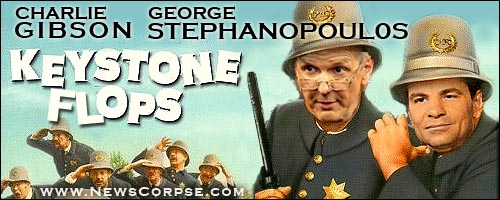Ronald Reagan would be 98 years old today were he alive. So on this special occasion, I thought it would be appropriate pay tribute with an excerpt of the new book by Will Bunch, “Tear Down This Myth.”
It was Ronald Reagan himself who, as the spotlight faded on his presidency in 1988, tried to highlight his eight-year record by reviving a quote from John Adams, that “facts are stubborn things.” The moment became quite famous because the then-77-year-old president had botched it, and said that “facts are stupid things.” The tragedy of American politics was that just two decades later, facts were neither stubborn nor even stupid – but largely irrelevant.
Any information about Iran-Contra or how the 1979-81 hostages were released (Rudy Giuliani had falsely claimed during the 2008 race they were freed when “the Gipper” looked Iranian leaders in the eye) that didn’t fit the new official story line was being metaphorically clipped out of the newspaper and tossed down “memory hole” – the fate of any information that would have undercut Reagan’s image as an all-benevolent Big Brother still guiding the conservative movement from above.
A more factual synopsis of the Reagan presidency might read like this: That Reagan was a transformative figure in American history, but his real revolution was one of public-relations-meets-politics and not one of policy. He combined his small-town heartland upbringing with a skill for story-telling that was honed on the back lots of Hollywood into a personal narrative that resonated with a majority of voters, but only after it tapped into something darker, which was white middle class resentment of 1960s unrest.
His story arc did become more optimistic and peaked at just the right moment, when Americans were tired of the “malaise” of the Jimmy Carter years and wanted someone who promised to make the nation feel good about itself again. But his positive legacy as president today hangs on events that most historians say were to some great measure out of his control: An economic recovery that was inevitable, especially when world oil prices returned to normal levels, and an end to the Cold War that was more driven by internal events in the Soviet Union and in Eastern Europe than Americans want to acknowledge.
His 1981 tax cut was followed quickly by tax hikes that you rarely hear about, and Reagan’s real lasting achievement on that front was slashing marginal rates for the wealthy – even as rising payroll taxes socked the working class. His promise to shrink government was uttered so many time that many acolytes believe it really happened, but in fact Reagan expanded the federal payroll, added a new cabinet post, and created a huge debt that ultimately tripped up his handpicked successor, George H.W. Bush. What he did shrink was government regulation and oversight — linked to a series of unfortunate events from the savings-and-loan crisis of the late 1980s to the sub-prime mortgage crisis of the late 2000s.
Happy birthday you greedy, lying, war-mongering, phony, SOB.


